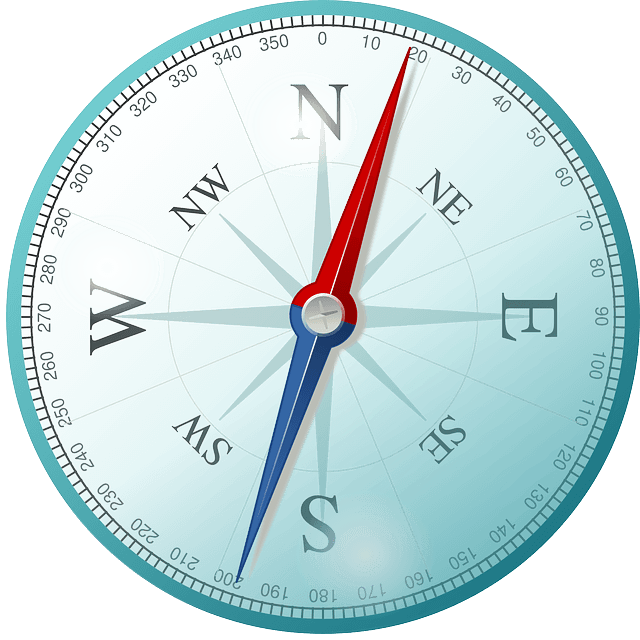Russian prepositions
Understanding Russian Prepositions: Definition and Functions
Prepositions play a crucial role in any language, and Russian is no exception. Russian prepositions, known as предлоги (predlogi), are essential components of sentences, providing important information about the relationships between nouns, pronouns, and other elements of a sentence. In this article, we will delve into the definition and functions of Russian prepositions, exploring their usage and examples.
- Definition of Russian Prepositions
- Russian prepositions are a class of words that typically precede nouns or pronouns and indicate the relationship between these words and other parts of a sentence. They are invariable, meaning they do not change their form regardless of the case, number, or gender of the word they modify. Unlike English prepositions, Russian prepositions govern specific cases, requiring the subsequent noun or pronoun to be in a particular case.
Functions of Russian Prepositions
Russian prepositions are indispensable elements of the language, enabling precise communication of location, movement, time, cause, and purpose. Understanding their usage and the cases they govern is vital for constructing grammatically correct sentences. By familiarizing yourself with the various Russian prepositions and their functions, you can enhance your language skills and confidently navigate the complexities of the Russian language.
Indicating Location
One of the primary functions of Russian prepositions is to express location or position. They provide information about where something or someone is in relation to other objects.
Common prepositions used for indicating location
- "в" (in, at)
- "на" (on, onto)
- "под" (under)
- "над" (above)
- "между" (between)
- "у" (by, near)
For example: Я живу в Москве. (I live in Moscow.) Книга лежит на столе. (The book is on the table.) Собака спит под деревом. (The dog is sleeping under the tree.)
Expressing Movement
Russian prepositions are also used to describe movement or direction. They indicate where someone or something is going or coming from.
Common prepositions used for expressing movement
- "к" (to, towards)
- "от" (from)
- "по" (along, through)
- "через" (across)
- "вниз" (down)
For example: Он идет к дому. (He is going towards the house.) Я приехал из Москвы. (I came from Moscow.) Машина проехала по улице. (The car drove along the street.)
Time
Russian prepositions are used to denote time and temporal relationships. They provide information about when something occurs.
Common prepositions used for marking time
- "в" (in)
- "на" (on)
- "после" (after)
- "до" (before)
- "во время" (during)
For example: Мы пришли в пять часов. (We arrived at five o'clock.) Мероприятие состоится после обеда. (The event will take place after lunch.) Я встречу тебя на вокзале. (I will meet you at the train station.)
Expressing Cause and Purpose
Russian prepositions can also indicate cause, purpose, or reason. They provide information about why something is happening or being done.
Common prepositions used for expressing cause and purpose
- "из-за" (because of)
- "для" (for, in order to)
- "ради" (for the sake of)
- "благодаря" (thanks to)
For example: Он забыл из-за суеты. (He forgot because of the rush.) Я учусь для будущей работы. (I am studying for future employment.) Они пришли ради интересного концерта. (They came for an interesting concert.)
Unraveling Russian Prepositional Phrases: Structure and Usage
Prepositional phrases are a fundamental aspect of language, including in Russian. They provide valuable information about location, time, manner, and other important relationships within a sentence. In this article, we will explore the structure and usage of Russian prepositional phrases, shedding light on their components and how they enhance communication.
Structure of Russian Prepositional Phrases
Russian prepositional phrases consist of a preposition followed by a noun or pronoun in a specific case. The preposition establishes the relationship, while the case determines the grammatical form of the subsequent noun or pronoun. Here is the basic structure of a Russian prepositional phrase: Preposition + Noun or Pronoun (in a specific case)
Usage of Russian Prepositional Phrases
Russian prepositional phrases play a vital role in expressing location, time, manner, purpose, and cause. By understanding their structure and usage, you can effectively convey precise information and create more nuanced sentences. Practice incorporating prepositional phrases into your Russian language learning, and explore real-life examples to enhance your understanding. With time and exposure, you will gain confidence in using prepositional phrases and enrich your communication skills in Russian.
Location and Position
Prepositional phrases are commonly used to express location and position in Russian. They provide details about where someone or something is situated. Here are some examples: В комнате (v komnate) - In the room На улице (na ulitse) - On the street Под столом (pod stolom) - Under the table Между двумя домами (mezhdu dvumya domami) - Between two houses У реки (u reki) - By the river
Time and Temporal Relationships
Prepositional phrases are also used to convey time-related information and temporal relationships. They specify when an event occurs or how actions are related in time. Consider the following examples: Вечером (vecherom) - In the evening В понедельник (v ponedel'nik) - On Monday После обеда (posle obeda) - After lunch В течение дня (v techenie dnya) - During the day Во время встречи (vo vremya vstrechi) - During the meeting
Manner and Means
Prepositional phrases can indicate the manner in which an action is performed or the means by which it is accomplished. They provide insight into how something is done. Here are a few examples: С улыбкой (s ulybkoy) - With a smile На автобусе (na avtobuse) - By bus Пешком (peshkom) - On foot С помощью компьютера (s pomoshch'yu komp'yutera) - With the help of a computer Без усилий (bez usiliy) - Without effort
Purpose and Cause
Prepositional phrases are also utilized to express purpose or cause, providing reasons for actions or events. They shed light on the motives behind certain actions. Consider the following examples: Для здоровья (dlya zdorov'ya) - For health Из-за дождя (iz-za dozhdya) - Because of the rain С целью улучшения (s tsel'yu uluchsheniya) - With the aim of improvement Ради спасения (radi spaseniya) - For the sake of salvation Благодаря твоей помощи (blagodarya tvoyey pomoshchi) - Thanks to your help
Unveiling the Beauty of Russian Prepositions: Idiomatic Expressions
Language is rich with idiomatic expressions, and Russian is no exception. Russian prepositions, when combined with other words, can create unique and colorful idiomatic expressions that add depth and flair to the language. In this article, we will explore a selection of Russian idiomatic expressions featuring prepositions, delving into their meanings and usage.
- Под рукой (pod rukoy) - At hand
- This expression signifies having something readily available or within reach. It can refer to both physical objects and abstract concepts.
- For example: У меня всегда есть ручка под рукой. (I always have a pen at hand.) У него всегда хорошие идеи под рукой. (He always has good ideas at hand.)
- На нервах (na nervakh) - On edge
- This expression describes being in a state of irritability or nervousness. It reflects a person's emotional state when they feel anxious or tense.
- For example: Она всегда на нервах перед экзаменами. (She's always on edge before exams.) Я не могу работать, когда я на нервах. (I can't work when I'm on edge.)
- По-дружески (po-druzheski) - In a friendly manner
- This expression refers to doing something in a friendly or amicable way. It implies a positive and cooperative interaction between people.
- For example: Мы разговаривали по-дружески о наших планах. (We talked about our plans in a friendly manner.) Он всегда обращается с людьми по-дружески. (He always treats people in a friendly manner.)
- На равных (na ravnykh) - On equal terms
- This expression indicates a situation where two or more parties are on an equal footing or have equal opportunities. It signifies a balanced and fair interaction.
- For example: Они договорились вести переговоры на равных. (They agreed to negotiate on equal terms.) В этой команде все работают на равных. (In this team, everyone works on equal terms.)
- В одиночку (v odinochku) - Alone, by oneself
- This expression signifies doing something alone or without the presence of others. It implies independence or self-reliance.
- For example: Он предпочитает путешествовать в одиночку. (He prefers to travel alone.) Я провел весь вечер в одиночку, читая книгу. (I spent the entire evening by myself, reading a book.)
- Под руководством (pod rukovodstvom) - Under the guidance
- This expression indicates being under someone's guidance or leadership. It implies being guided or supervised by someone in a specific endeavor.
- For example: Этот проект проводится под руководством опытного менеджера. (This project is being conducted under the guidance of an experienced manager.) Они разрабатывают новую программу под руководством ведущих экспертов. (They are developing a new program under the guidance of leading experts.)
Russian idiomatic expressions featuring prepositions add color, nuance, and cultural context to the language. By incorporating these expressions into your vocabulary, you can enhance your understanding of Russian and communicate more effectively. Remember to practice using them in context to develop a natural feel for their usage. Embrace the beauty of Russian prepositions and their idiomatic expressions, and watch your language skills flourish.
Russian prepositions classification
We are going to look at the three ways how we can classify Russian prepositions. Majority of our learners learn Russian from scratch. As a beginner, you will probably be more interested at the first classification – types of prepositions. Don’t be stressed if it looks for you too complicated. Just go through each preposition separately. This content is more for those learners, who need to see the whole picture, before they move on to look at it in more details.
Type of prepositions
Prepositions help to convey different concepts. Below you will find basic prepositions, which are classified according to their meaning.
Time:

в , с, до, к, под, через , за, перед, с, на, по, при.
Examples:
к утро , учиться с утра до неделе , по приезде, при королеве.
 Spatial:
Spatial:
в , по, от, до, через , к, на, мимо, из.
Examples:
жить идти по городу, ехать от станции, лететь до Москвы, плыть жизни .
Object:
о , за.
Examples:
взять за руку , рассказать о себе.
 Reason
Reason
От, из, от, из-за, по, с, за, под, в .
Examples:
бледнеть от испуга, промолчать из уважения, не заснуть от шума, не прийти из-за болезни, прийти с намерением, не ответить по недоразумению, наградить за отвагу, выбросить за ненадобностью, промокнуть под дождем , находиться в отчаянии.
Purpose
в , под, для , ради, на, про, за.
Examples:
отдать купить молоко на завтрак, купить про запас, пойти в магазин за молоком,
Mode of action:
Examples:
налить через край.
Quantitative and qualitative:
В , во.
Examples:
мороз в три градуса, во много раз лучше.
 Accompanying:
Accompanying:
С
Examples:
гулять с друзьями .
Concessions:
Несмотря на.
Examples:
несмотря на неудачу
Derivative and non-derivative prepositions
One more classification of the Russian prepositions we use is to split them by derivative and non-derivative prepositions.
Non-derivative prepositions
It is group of ancient prepositions, which have never been changed
since.
Relationships between prepositions and nouns, pronouns, numeral and
adjectives.
Genitive case
Без, до, из,
от, с, у, из-за,
из-под,
между, ради
Dative case
К, по
Accusative case
За, на,
о
, по, под, про,
с,
через
, сквозь
Instrumental case
За, над,
перед, под, с,
по, над,
между
Prepositional case
В
, на,
о
, при
Derivative prepositions
We can split derivative prepositions into three groups, according to the part of speech they’ve been created from.
- adverbial : напротив, кругом, против, вдоль, вокруг, мимо, позади and more. Example: вдоль забора, вокруг планеты, напротив кафе, позади сидеть напротив, идти позади.
- nounal : насчет, посредством, путем, по поводу, по случаю, в продолжение, по причине, со стороны, наподобие, вроде, ввиду, вследствие, в течение and more.
- verbal or participial : несмотря на, невзирая на, включая, благодаря , исключая; спустя and more.
By structure
The last classification is according to their structure.
- simple (one word) кроме, около, навстречу, включая.
- compound (two parts) из-за, из-под.
- complex (two or three elements) во время, по причине, в связи с, по отношению к.
- compound-complex (two or more elements)
preposition and adverb –
впредь до,
независимо
от.
preposition and participle
– исходя
из, не
говоря
о
,
несмотря
на, судя по.
preposition and noun and
preposition –
в
зависимости
от,
в
ответ
на,
в
отношении
к, по пути к,
в
соответствии
с.
